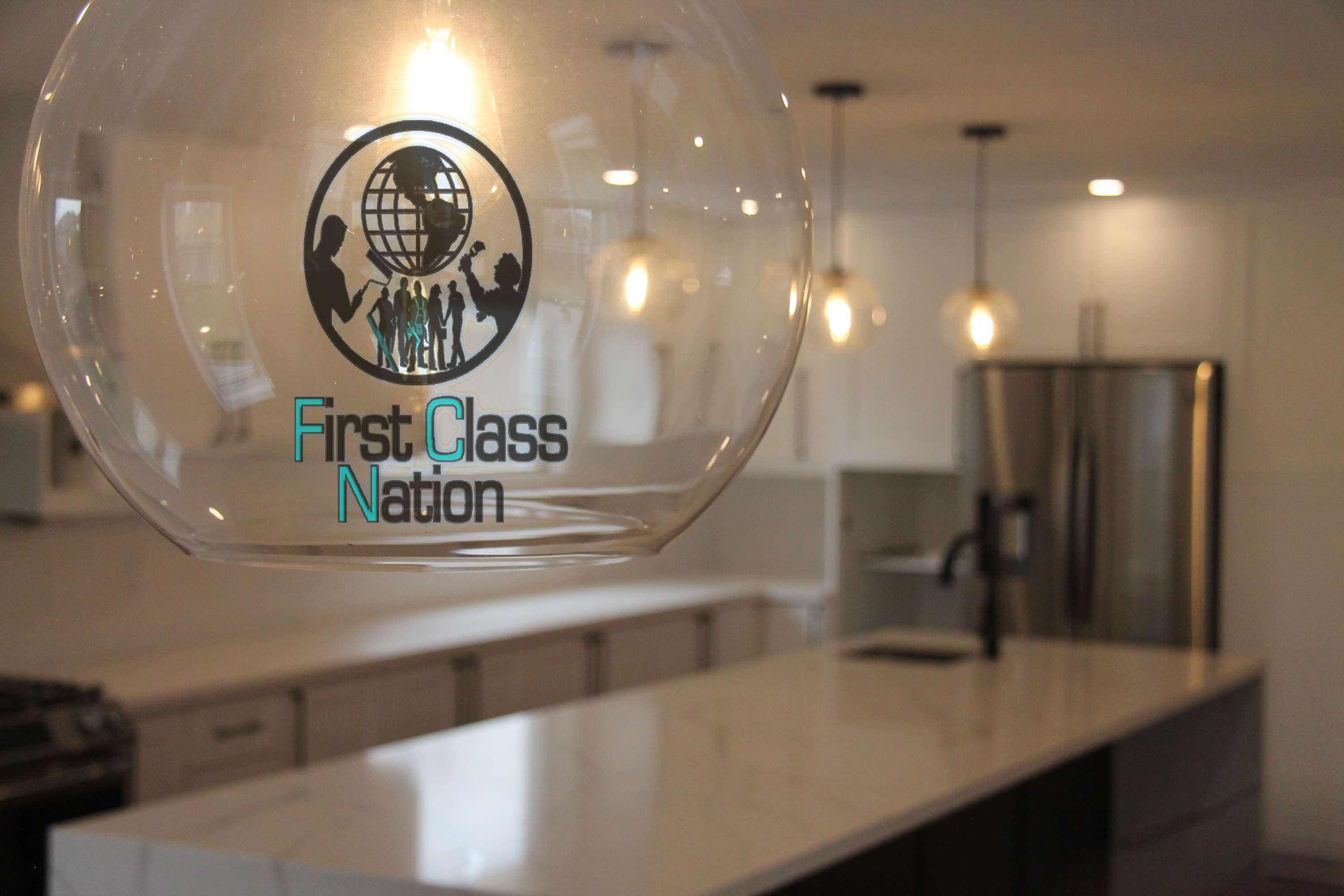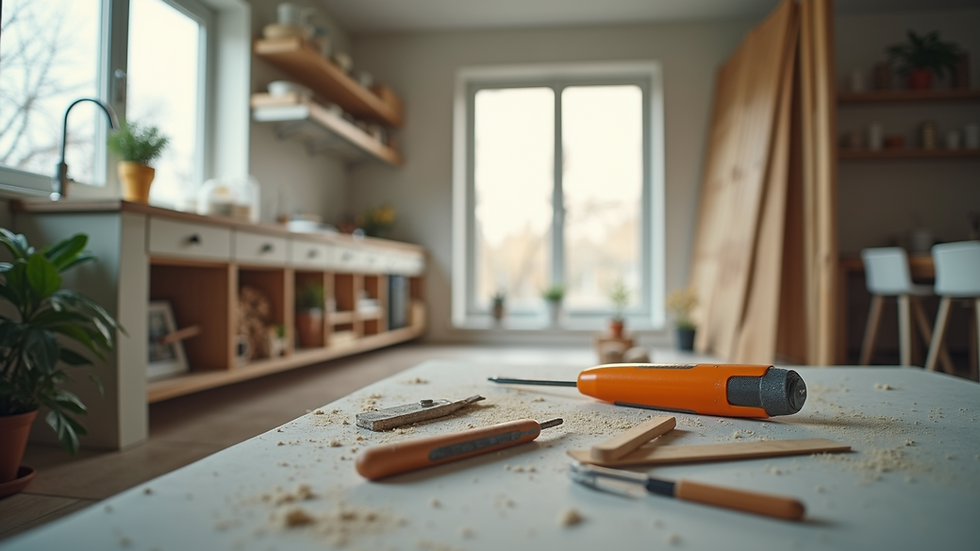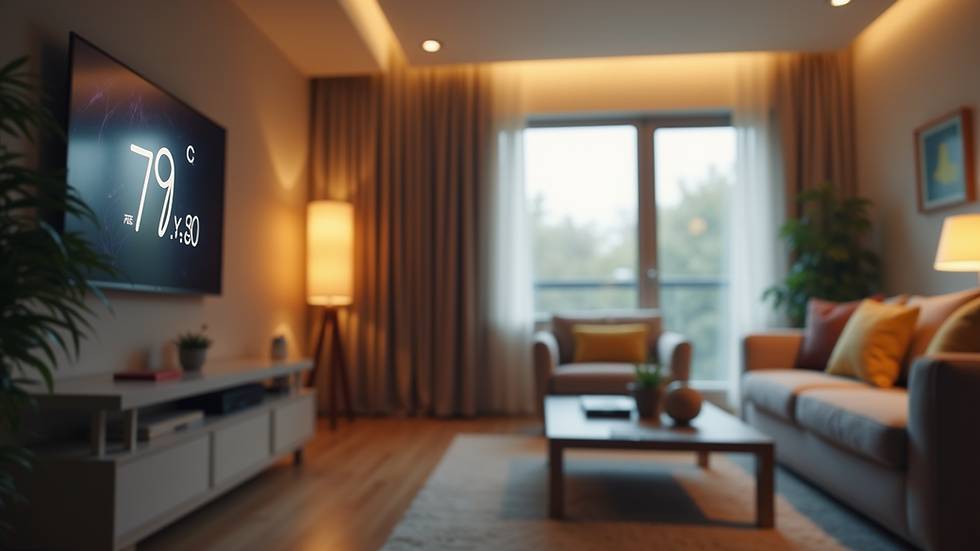What to Know Before Starting a Home Addition Project
- First Class Nation Contracting
- Sep 5, 2025
- 3 min read
Adding extra space to your home can be an exciting way to improve your living environment and increase your property value. However, a home addition project requires careful planning and consideration to ensure it goes smoothly and meets your needs. Before you start knocking down walls or drawing up plans, there are several important factors to understand.
Understanding the Scope of Your Home Addition
Before diving into a home addition, it’s crucial to clearly define what you want to achieve. Are you looking to add a new bedroom, expand your kitchen, or create a dedicated office space? Knowing the purpose of your addition will guide every decision you make.
Assess your current space: Identify which areas feel cramped or underutilized.
Consider future needs: Think about how your family might grow or change.
Check zoning and permits: Local regulations can affect what you can build.
For example, if you want to add a sunroom, you’ll need to consider the orientation of your house to maximize natural light. If you’re adding a second story, structural integrity and foundation strength become critical.

Planning Your Home Addition Wisely
Planning is the backbone of a successful home addition. It involves budgeting, design, and choosing the right professionals to help you.
Set a realistic budget: Include costs for materials, labor, permits, and unexpected expenses.
Design with functionality in mind: Work with an architect or designer to create a layout that flows well with your existing home.
Hire experienced professionals: Look for reputable addition contractors who understand local building codes and have a track record of quality work.
During planning, consider how the addition will affect your daily life. Will construction noise disrupt your routine? How will you manage waste and materials on-site? Planning these details ahead of time can save stress later.

How much does an addition cost in Alberta?
Costs for home additions in Alberta can vary widely depending on the size, materials, and complexity of the project. On average, you might expect to pay between $150 to $300 per square foot. Here are some factors that influence the price:
Type of addition: A simple room addition will cost less than a full second story.
Materials used: High-end finishes and custom features increase costs.
Labor rates: Skilled labor in Alberta can be more expensive depending on demand.
Permits and inspections: These are mandatory and add to the overall cost.
For example, a 200-square-foot kitchen extension could cost anywhere from $30,000 to $60,000 or more. It’s important to get multiple quotes and understand what is included in each estimate.

Navigating Permits and Regulations
One of the most overlooked aspects of a home addition is obtaining the necessary permits. Building without permits can lead to fines, forced removal of the addition, or problems when selling your home.
Contact your local municipality: Find out what permits are required for your project.
Understand zoning laws: These laws dictate setbacks, height restrictions, and lot coverage.
Schedule inspections: Inspections ensure your addition meets safety and building codes.
Working with experienced addition contractors can help you navigate this process smoothly. They often handle permit applications and inspections as part of their service.
Preparing for Construction Day
Once your plans are approved and permits are in hand, it’s time to prepare for construction. This phase can be disruptive, so preparation is key.
Clear the work area: Remove furniture, plants, or other items near the construction zone.
Set up a temporary living space: If your kitchen or bathroom is affected, plan alternatives.
Communicate with your contractor: Establish a schedule and points of contact.
Expect noise, dust, and some inconvenience, but remember that these are temporary. Keeping a positive attitude and staying organized will help the project stay on track.
Making the Most of Your New Space
After construction is complete, it’s time to enjoy your new addition. To maximize its benefits:
Furnish thoughtfully: Choose furniture that fits the new space without overcrowding.
Add finishing touches: Paint, lighting, and decor can make the addition feel like part of your home.
Maintain regularly: Keep an eye on any settling or minor issues that may arise.
A well-planned home addition can transform your living experience and add lasting value to your property.
Starting a home addition project is a big step that requires careful thought and planning. By understanding the scope, budgeting wisely, navigating permits, and preparing for construction, you can create a space that perfectly suits your needs. If you’re considering a home addition, consulting with professional addition contractors can provide valuable guidance and ensure your project is a success.





Comments